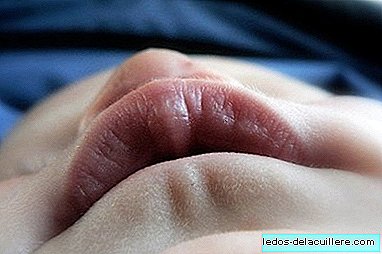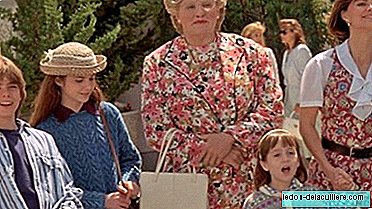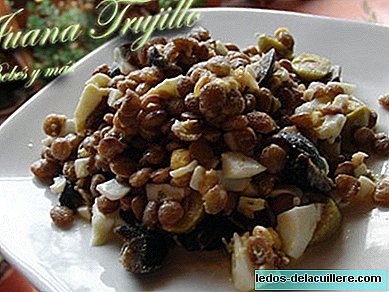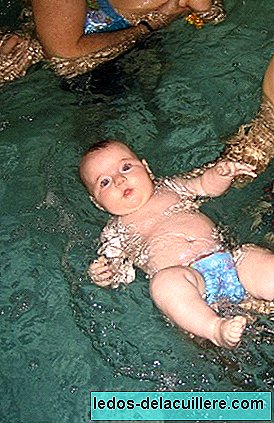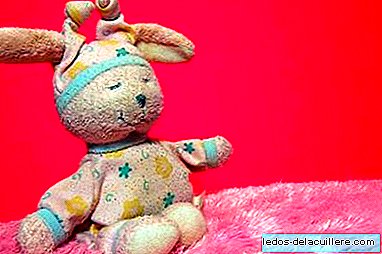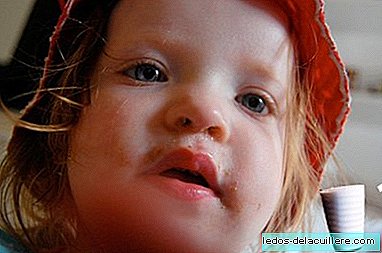
The month of October is ending and the cold seems to be here to stay, so accompanying it comes colds, mucus, bronchitis, laryngitis and ultimately all the "itis" that are associated with the respiratory system.
This makes many parents seek prevention rather than cure and seek solutions before problems appear. That is when the dialogues between parents of "this works for me" come and "I am doing great with ...", among which is the phrase: "I do not give milk, because it produces mucus."
So when a child catches a cold or becomes ill, in addition to taking appropriate measures to resolve the symptoms, many parents stop giving milk to their children. Others, even more daring, do not give them even if they are healthy, to avoid the first mucus.
The reality is that, today, there is no evidence that can prove that cow's milk produces mucus and if it cannot be demonstrated that such a relationship exists, it can be said that it is a myth or an unfounded urban legend that is causing many children to not drink milk.
Milk and mucus, together, but not scrambled
What mucus and milk have in common is that those who live with both things are children. The first years of children are a coming and going of infections of all kinds, basically because children are little people whose immune system is still immature and not only take everything, but they have a hard time letting go. If we add to this that today the majority go to daycare or school, you have a lot of children together who are passing viruses like someone who passes a ball.
In those early years children drink a lot of milk and do it because it is one of the essential foods at that stage: it is source of calcium and vitamins (especially A and D) and contains lactose, which has proven to be an important element when properly absorbing calcium.
Then, coinciding in time a high consumption of milk (maternal, artificial or cow) with a large number of infections, coughs and mucus, someone must have made one of those absurd associations that end up getting deep and that they generate advice health ("leave the milk, which produces mucus") that many people end up following because they believe it.
But, we can live without milk
There is much doubt about the convenience of drinking cow's milk or not doing it for the first few years, to the point that many families have stopped giving cow's milk to children, replacing it with soy or almond-based drinks, which have little to do with milk (starting with the fact that it is neither milk, nor does it have lactose, for example).
The reality is that yes, children need to drink milk. Proof of this is that during the first years we all tolerate (except those born with intolerance) lactose without problems and then lose lactose, enzymes that digest lactose. This is because we are prepared to drink milk from our mother and, once weaning is done, the lactases begin to decrease (more or less it is estimated that a child who does not take cow dairy after the breastfeeding period will have, at 4 years old) , 90% of the lactase I had when I was younger).
If a child, after weaning, continues to take cow's milk on a regular basis, it is most likely that he will continue to produce lactase and not become intolerant, although there are 15% of people who in adulthood will have such intolerance (I speak of Spain).
Adults can live without milk, as we can live without fruit, without vegetables or without bread. Another thing is that it is advisable to do so or that we simply find the sources of calcium and vitamins elsewhere. Children, on the other hand, do need milk: It is the first thing they look for when they are born and that is what they feed exclusively for the first six months. After those months, and even after the 4 years we have mentioned above, it is still just as good and just as recommended.
But the doctor told me ...
The strangest thing about the matter, or perhaps not so much, because many medical advice is not well founded, is that Many times it is the doctors and pediatricians themselves who recommend avoiding dairy products in times of mucus. This means that many children are not drinking milk at a time when they need more calcium than ever, because they are growing.
It is not that you can not live without milk, which we have already said that you can, the problem is that many children, if they do not drink milk, may not be able to take the minimum necessary calcium or drink it and not be able to absorb it correctly.
I repeat: there is no relationship between mucus and milk consumptionSo if your child has boogers, drink plenty of water and continue drinking milk and eating yogurt and cheese as usual.



